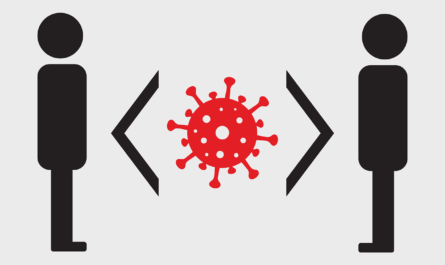Making the Mystery of Your Period Easy to Understand
Why Do We Call It a ‘Period’?: Ah, the period. It’s something many women have for most of their lives, but they often don’t fully understand it (surprise! You’re not alone!). If you’ve ever wondered how it works, why it’s called a “period” or how to know your safe or fertile days, you’re in the right place. We’re explaining it simply, like talking to a friend with some helpful tips to make your life easier.
Here’s what we’ll talk about:
- What exactly is a period cycle?
- How to figure out how long your cycle is and when you’re most fertile
- Tools like period cycle calculators
- The difference between a cycle and a period
- Fun (and surprising) facts about periods
Grab a coffee (or some chocolate), and let’s get started.

What Is a Period Cycle and How Does It Work?
Your period cycle is your body’s way of getting ready for a possible pregnancy each month. It’s like a special dance between your brain, hormones, and the parts of your body that have to do with having babies. Usually, a period cycle lasts about 28 days, but don’t worry if yours is a little longer or shorter (normal cycles are between 21 and 35 days).
Here’s a simple breakdown:
- Period (Days 1-7): This is when your body gets rid of the lining of your uterus (womb). This is your period, the bleeding. Some periods have more or less blood flow, and both can be normal.
- Follicular Phase (Days 1-14): While you’re having your period, your ovaries are getting an egg ready (like a tiny important person getting ready for an event!).
- Ovulation (Around Day 14): The big moment! One of your ovaries releases an egg, and this is when you’re most able to get pregnant (fertile).
- Luteal Phase (Days 15-28): If the egg doesn’t get fertilized, your body slows down, and the cycle starts all over again.
Still with me? Good. Now let’s clear up some things people often get confused about with periods and cycles.
Is Your Period the Same as Your Cycle?
No, not exactly! Your period (the bleeding) is just one part of your whole period cycle. Think of your period as one episode in a much bigger TV show called “The Period Cycle.” It starts the “season,” but there’s a lot more happening behind the scenes.
Fun fact: The word “period” comes from a Greek word that means “coming around again.” Makes sense, right?
How to Figure Out How Long Your Cycle Is
Want to understand your own cycle? It’s easier than you think:
- Mark Day 1: This is the first day you have full bleeding (not just spotting).
- Mark the Start of Your Next Period: When your next period begins, write down the date.
- Count the Days in Between: The number of days from the first day of one period to the first day of the next is how long your cycle is.
For example, if your last period started on October 1st and your next one starts on October 29th, your cycle is 28 days long. Easy math, right?
If your periods aren’t regular, tracking them for a few months using a period cycle calculator can give you a better idea of what’s normal for you.
Good tip: There are lots of apps (like Clue or Flo) that make tracking really easy. You don’t even need a pen and paper!
When You’re Fertile in Your Cycle
This is a very important question for many reasons: When are you most likely to get pregnant? Your fertile time is usually around ovulation (which is usually 12-16 days before your next period starts).
Here’s how to figure it out:
- Take the length of your cycle and subtract 14 days (for example, in a 28-day cycle, ovulation is around day 14).
- Your fertile window is the six days leading up to and including the day of ovulation.
If you’re trying to avoid getting pregnant or trying to get pregnant, knowing your fertile and safe days (the days you’re less likely to get pregnant) is really important. Tools like ovulation or fertility calculators can help with this.
Remember, cycles can be unpredictable, so be careful if you’re using this information to prevent pregnancy.
What About Periods That Aren’t Regular?
If your period cycle feels like it does its own thing, don’t panic. Stress, changes in your life, what you eat, and even traveling can sometimes mess things up. If your periods are often not regular (for example, cycles longer than 35 days or shorter than 21 days), it’s a good idea to talk to your doctor. They can help make sure there isn’t a health issue like PCOS or thyroid problems.
If your periods are irregular, using a period cycle calculator can help you see if there are any patterns (because even things that seem random can have patterns!).
Fun (and Weird) Facts About Periods
- Moon Connection: Some people think periods line up with the moon (which is about 28 days), but it’s really just a coincidence. Our bodies don’t follow the moon’s schedule.
- Period Syncing Is a Myth: Sorry, but science says that friends’ periods don’t actually sync up just from spending time together. That’s just something you see in movies or TV.
Now you have something interesting to talk about at awkward family dinners.
Common Questions About Periods Answered
- Does my period cycle start at the beginning or end of my bleeding? It starts on the very first day of full bleeding.
- Why is there sometimes brown stuff before my period? That’s totally normal. It’s just old blood leaving your body.
- What makes periods miss or be irregular? Changes in your hormones, stress, changes in your weight, or some medical conditions could be the reason.
- Can I know when my next period will be? If you track your periods regularly, yes! Many apps can predict the dates pretty accurately once they learn your cycle.
Have more questions? Leave a comment, and we’ll figure things out together.
Why Understanding Your Cycle Is Important
Your period cycle isn’t just about bleeding; it tells you a lot about your overall health. By tracking it, you can:
- Notice if things aren’t regular early on
- Understand when you’re most likely to get pregnant
- Plan things better (like vacations or trying for a baby!)
Knowing about your body is powerful. And when it comes to your health, it’s one of the best things you can do for yourself.
Save this article or share it if it helped you. Tracking your cycle is a gift that keeps giving not just to you but also to future women who are talking more openly about periods.
Please note that you should not take any medicine or treatment mentioned in this article without consulting a doctor. We do not suggest you do so. Please be sure to seek the advice of your doctor before taking anything.
To Read More: Save Time, Save Stress: Your Essential Guide to Women’s Health Checkups
Join Us: Facebook



